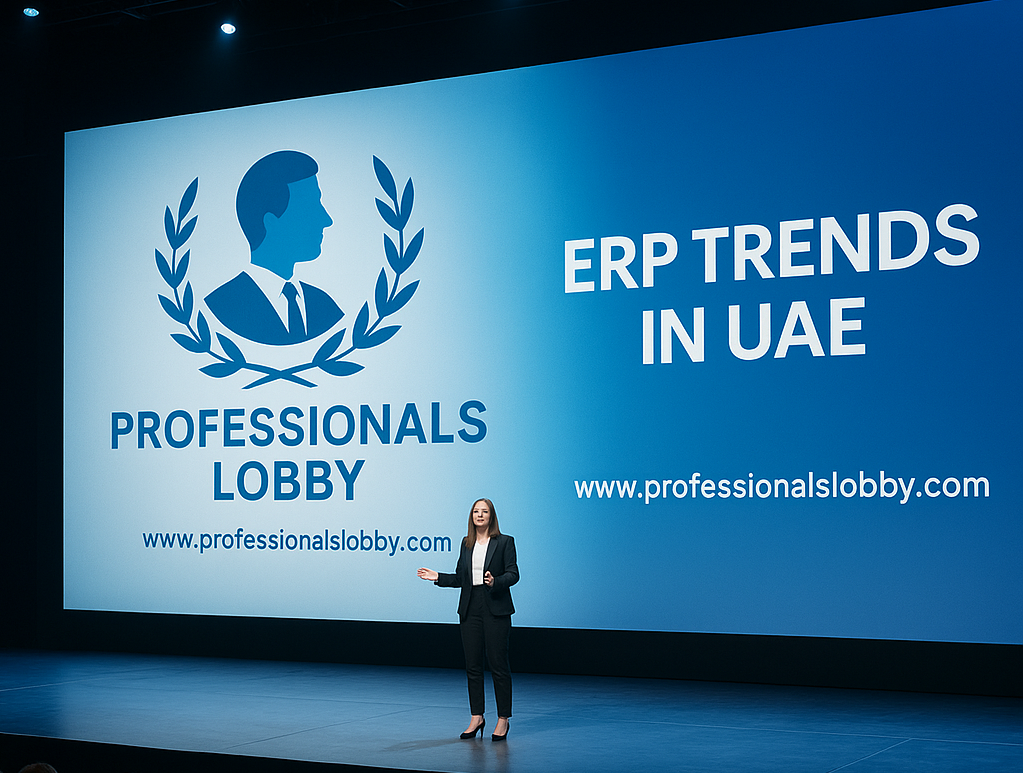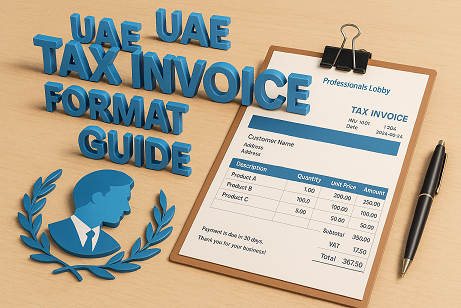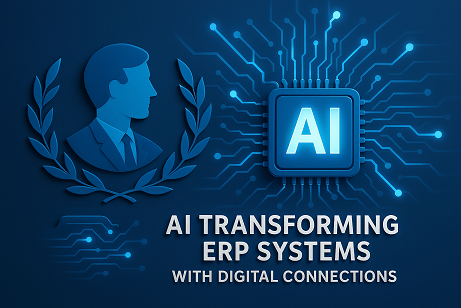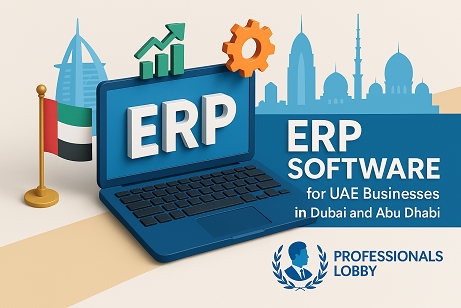The UAE business landscape demands digital excellence. With rapid digital transformation, stringent compliance requirements, and fierce competition, implementing the right ERP software in UAE has become a strategic imperative rather than a technological choice. This comprehensive guide explores how modern ERP solutions drive growth, ensure compliance, and future-proof businesses across Dubai, Abu Dhabi, and the wider UAE market.
Keywords for UAE ERP Market
Quick Navigation
UAE ERP Market Overview
The ERP software market in UAE is experiencing unprecedented growth, driven by digital transformation initiatives, government mandates, and increasing competitive pressures. Dubai leads as the largest ERP market in the region, followed closely by Abu Dhabi and other emirates.
Key Market Drivers
- Government digitalization initiatives promoting technology adoption
- SME sector expansion requiring scalable business solutions
- Upcoming e-invoicing mandate (effective July 2026) forcing system upgrades
- Cloud technology adoption reducing implementation barriers
- Increasing compliance complexity with VAT, corporate tax, and ESR
Cloud vs. On-Premise ERP in UAE
The deployment model for ERP software in Dubai and across the UAE has shifted dramatically toward cloud-based solutions, particularly suited to the region's dynamic business environment.
Cloud ERP
- Lower upfront costs - subscription model
- Faster implementation - typically 3-6 months
- Automatic updates - always current with compliance requirements
- Mobile accessibility - essential for UAE's mobile workforce
- Scalability - grows with your business
On-Premise ERP
- Higher initial investment - hardware and licenses
- Longer implementation - 12-24 months typical
- Manual updates - requires IT resources
- Limited mobility - typically office-bound
- IT infrastructure required - maintenance and staffing
For most UAE businesses, especially SMEs in Dubai and Abu Dhabi, cloud ERP offers the agility, cost structure, and accessibility needed in today's competitive market.
Compliance Requirements for UAE ERP Systems
Navigating the UAE's regulatory landscape is a primary driver for ERP implementation in UAE. The upcoming e-invoicing mandate and existing tax regulations make compliance-ready ERP systems essential.
E-Invoicing Mandate (Effective July 2026)
All B2B and B2G transactions will require e-invoicing in structured XML format following Peppol PINT AE standards. Manual invoices or PDFs will no longer be compliant.
Essential Compliance Features for UAE ERP
| Regulation | Key Requirement | ERP Solution |
|---|---|---|
| E-Invoicing | Structured XML format, FTA integration | Built-in e-invoicing module with Peppol PINT AE support |
| VAT | Accurate record-keeping, VAT 201 returns | Automated VAT calculation, FTA-compatible reporting |
| Corporate Tax | Financial transparency, audit trails | Comprehensive financial management with audit trails |
| ESR | Economic substance demonstration | Centralized operations tracking and reporting |
| WPS | MoHRE-compliant payroll processing | Integrated HR with WPS SIF file generation |
Important Note
The e-invoicing mandate effective July 2026 makes ERP modernization a compliance requirement rather than a strategic choice. Businesses should begin planning their ERP implementation now to meet this deadline.
Industry-Specific ERP Solutions in UAE
Different sectors have unique requirements for ERP software in Dubai and across the UAE. Here's how ERP solutions cater to major industries:
Manufacturing
- Bill of Materials (BOM) management
- Production planning and scheduling
- Quality control and compliance
- Supply chain optimization
Construction & Real Estate
- Project costing and budgeting
- Resource allocation
- Document management
- Contract and lease management
Retail & E-commerce
- Multi-channel inventory management
- Point of Sale (POS) integration
- Customer relationship management
- Omnichannel sales management
Logistics & Supply Chain
- Warehouse management (WMS)
- Fleet and transportation management
- Customs compliance
- Real-time tracking
Hospitality
- Reservation management
- Front desk operations
- Inventory and kitchen management
- Guest experience management
Healthcare
- Patient records management
- Appointment scheduling
- Medical inventory management
- Compliance with healthcare regulations
ERP Implementation in UAE: Best Practices
Successful ERP implementation in UAE requires careful planning, cultural awareness, and expert guidance. Here's a proven framework for success:
ERP Implementation Roadmap
Planning & Discovery
Define business goals, assess current processes, establish budget and timeline, form project team
Vendor Selection
Evaluate solutions, check references, assess UAE experience, negotiate contracts
System Design
Configure system, map business processes, develop customization specifications
Development & Testing
Develop customizations, migrate data, conduct comprehensive testing, train super-users
Deployment & Go-Live
Phase rollout, provide support, monitor performance, address issues promptly
Optimization & Growth
Continuous improvement, additional training, system enhancements, expansion
Common Implementation Pitfalls
| Pitfall | Impact | Prevention Strategy |
|---|---|---|
| Inadequate planning | Budget overruns, timeline delays | Detailed project charter, realistic timeline, contingency budget |
| Poor data migration | System errors, reporting issues | Data cleansing, validation, migration rehearsals |
| Insufficient training | Low user adoption, productivity loss | Role-based training, ongoing support, change champions |
| Customization overruns | Increased costs, upgrade challenges | Configuration-first approach, minimal customization |
| Weak change management | User resistance, process rejection | Clear communication, executive sponsorship, involvement |
Selecting the Right ERP Software in UAE
Choosing the right ERP solution for your UAE business requires careful consideration of several factors:
Compliance Capabilities
Ensure the system handles UAE-specific requirements including VAT, e-invoicing, WPS, and corporate tax.
Industry Specificity
Select a solution with proven experience in your industry sector.
Deployment Options
Evaluate cloud vs. on-premise based on your IT capabilities and business needs.
Vendor Experience
Choose a vendor with proven UAE implementation experience and local support.
Total Cost of Ownership
Consider all costs: software, implementation, customization, training, and maintenance.
Scalability
Ensure the system can grow with your business and accommodate future needs.
Top ERP Solutions in UAE
- SAP Business One - Comprehensive solution for midsize businesses
- Oracle NetSuite - Leading cloud ERP platform
- Microsoft Dynamics 365 - Strong integration with Microsoft ecosystem
- Odoo - Modular, cost-effective open source solution
- Zoho ERP - Affordable option for small businesses
Selection Pitfalls to Avoid
- Choosing based on price alone
- Overlooking UAE-specific compliance features
- Selecting a vendor without local presence
- Ignoring post-implementation support
- Underestimating change management needs
Conclusion: Future-Proof Your UAE Business with ERP
Implementing the right ERP software in UAE is no longer optional for businesses seeking growth, compliance, and competitive advantage. The market is moving rapidly toward cloud-based, AI-powered solutions that offer flexibility, scalability, and continuous innovation.
With the impending e-invoicing mandate in 2026, businesses across Dubai, Abu Dhabi, and the wider UAE should begin their ERP evaluation and implementation journey now to ensure compliance and avoid last-minute challenges.
The key to successful ERP implementation lies in:
Thorough Planning
Define clear objectives, budget, and timeline with stakeholder involvement.
Careful Vendor Selection
Choose experienced partners with UAE-specific expertise.
Robust Change Management
Prepare your organization for the transformation with training and support.
Need Help Selecting UAE-Compliant ERP Software?
Our vendor-neutral consultants can help you navigate the complex ERP landscape and identify the perfect solution for your UAE business requirements and compliance needs.
Request Free ERP Consultation


